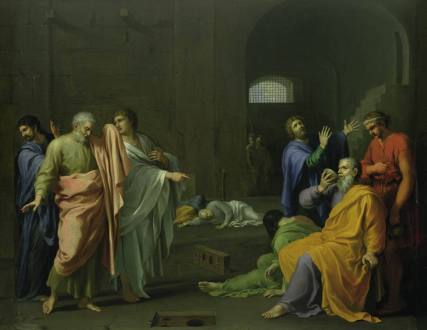How Plato and Aristotle would have tackled unemployment
Labour is up in arms because many of the new jobs currently being created are among the self-employed. This seems to them to be cheating. Quite the reverse, ancients would have said. Ancient thinkers knew all about the needs of the poor and were worried about their capacity to cause trouble (as they saw it) by revolution. So in a world where everyone lived off the land (the wealthy by renting it out), Plato thought there should be a law that everyone should have a basic minimum of land to live off, and no one should own property more than five times the size of the smallest allotment; any excess



